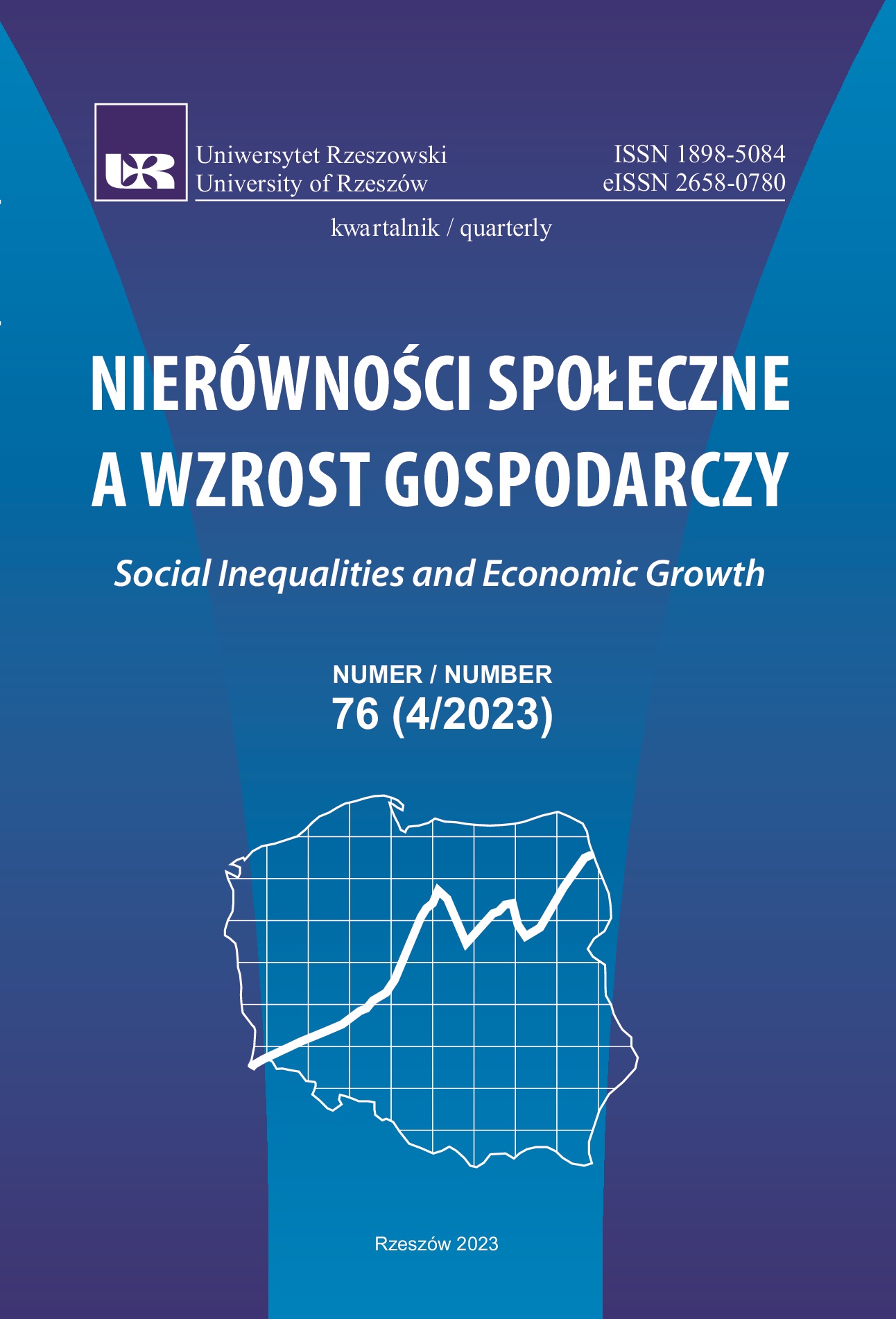Uwarunkowania demograficzne i wybrane
konsekwencje społeczne kurczenia się miast
województwa zachodniopomorskiego
Demographic conditions and selected social consequences
of the shrinking of cities in the West Pomeranian Voivodeship
Author(s): Iwona JażewiczSubject(s): National Economy, Welfare systems, Health and medicine and law, Gerontology, Economic development, Socio-Economic Research
Published by: Wydawnictwo Uniwersytetu Rzeszowskiego
Keywords: demographic shrinking of cities; aging population; education; housing; cities of the West Pomeranian Voivodeship;
Summary/Abstract: The issue of the demographic shrinking of cities appeared in Polish literature at the turn of the 20th and 21st centuries and has become an extremely important research problem, since the processof shrinking cities affects social, economic and spatial transformations along with the environmentalprotection offered by cities. The aim of this study is to present demographic conditions and indicate,using selected examples, the social consequences of the shrinking of cities in the West PomeranianVoivodeship, with particular emphasis on demographic aging, care for the elderly, challenges forthe education system and housing issues. To collect factual material, the desk research methodwas used, and applied to statistical data. The statistical material came from official public statisticsdatabases, i.e. the Local Data Bank and the Dermographia database, as well as the Family and SocialWelfare Branch of the West Pomeranian Voivodeship Office. Non-reactive methods were also usedto analyze documents and reports, while, based on a library query, a literature review was carriedout in the context of the research.The research clearly shows that the growing social problems in the cities of the West PomeranianVoivodeship have demographic conditions. The decline in the urban population is the result ofa natural decline in population and the growing negative migration rate. As a consequence, the vastmajority of cities represent a regressive type of population, with a downward trend of inhabitantscontinuing until 2050. The causes behind the depopulation of cities in the West PomeranianVoivodeship can be traced to changes in the lifestyle of young people and, above all, conservativereproductive attitudes, as well as the growing outflow of people from cities to suburban areas andforeign economic migration.The demographic shrinking of cities was reflected in the area of social consequences. Thedepopulation of cities leads to the demographic aging of residents, which is associated with theneed to provide care for the elderly. As the research shows, there is an increasing interest in theinstitutionalized forms of activity, as evidenced by the growing number of social welfare homesand the number of elderly people covered by care services. Another important consequence of thedemographic shrinking of the regional cities is the problem of education in the West PomeranianVoivodeship. The decreasing number of children and young people is becoming a challenge for localauthorities, which, due to the rising costs of maintaining schools, must decide to limit the numberof educational institutions. Having your own apartment is extremely important from a social pointof view, but unfortunately, even in the demographically shrinking West Pomeranian cities, there isstill a housing deficit, even though the number of newly completed buildings and apartments showsupward trends and the number of uninhabited apartments is increasing.To sum up, contemporary demographic changes in West Pomeranian cities indicate the pro-cesses of demographic shrinkage of cities, which will certainly contribute to the accumulation ofsocial consequences. Cities, in the face of contemporary reality, face the challenge of preparing newstrategic and planning documents with a new vision of city development.
Journal: Nierówności Społeczne a Wzrost Gospodarczy
- Issue Year: 2023
- Issue No: 76
- Page Range: 179-198
- Page Count: 20
- Language: Polish

